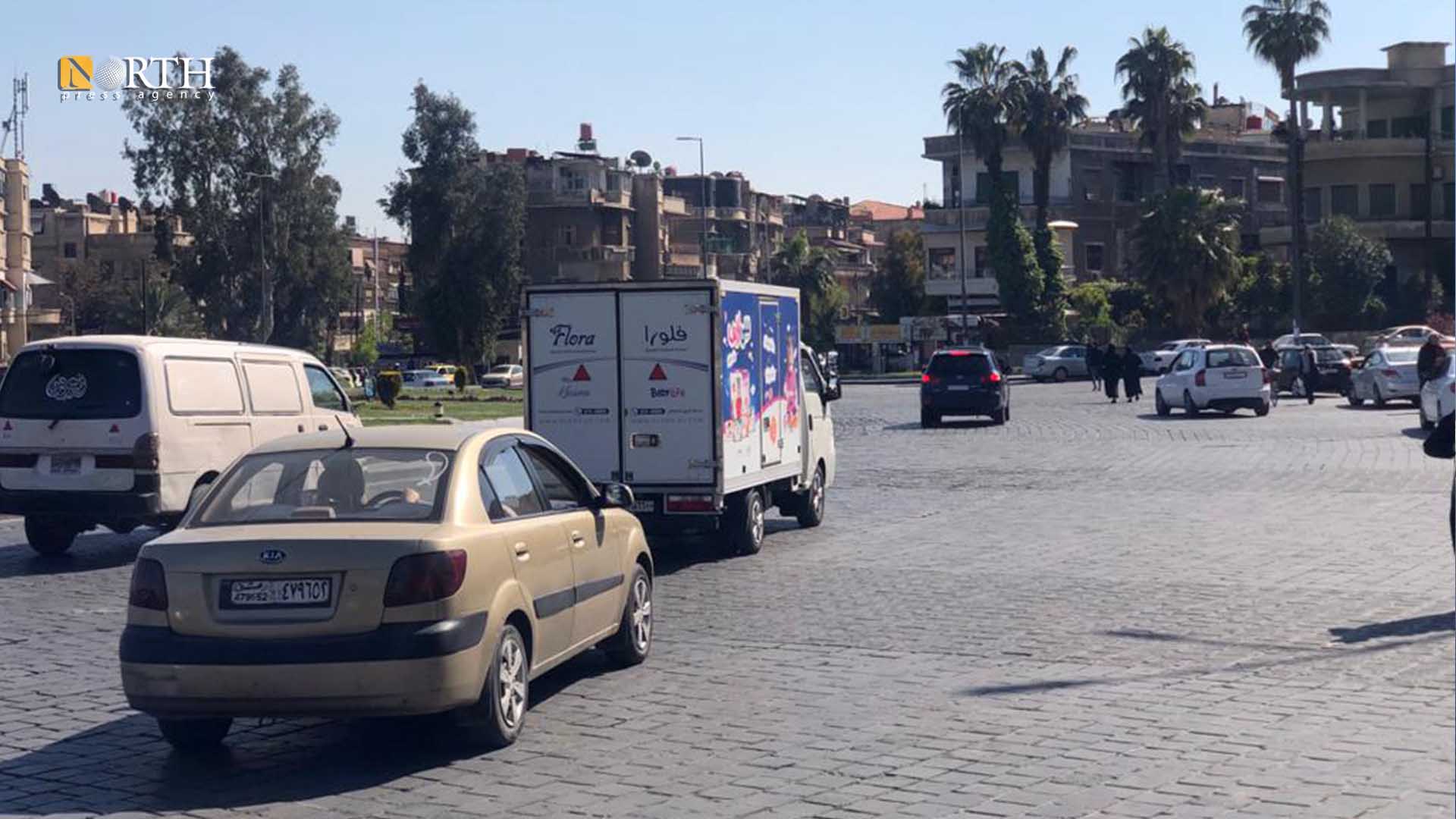DAMASCUS, Syria (North Press) – Haytham al-Jasem, a pseudonym for a resident from Raqqa residing in Damascus, has not expected to find his car, which was stolen in Raqqa in 2014, to be found in the Syrian capital, Damascus.
Nine months ago, al-Jasem received a phone call from his neighbor, who works a driver, informing him that he saw a car bearing the plate of his stolen car.
However, al-Jasem did not take this seriously first, but his neighbor’s insistence encouraged him to visit Transportation Office for asking, as he was shocked to know that his car was sold several times.
Meanwhile, courts in Damascus are witnessing several lawsuits for cars stolen from northeast Syria and found in the government-held areas.
Although cars’ real owners submit communications, but the possibility to get their cars back is pretty little, according to them.
Ownership transfer
“The thief transferred car’s ownership to himself through a court ruling that he obtained from Hasakah and then sold the car to a person, who, in turn, sold it to the current owner,” al-Jasem added.
Al-Jasem, who filled a lawsuit in Damascus’ courts, has a little hope to get his car back because the last buyer bought the car legitimately, according to the judge supervising the case.
Nowadays, social media pages are full of posts for registered cars in the government’s sectors for sale; however, those who release the posts are not the real owners, but brokers, who have nothing but informative papers and copies for identity cards that they obtained after paying bribes to employees in the Transportation Department.
“Car traders, who are linked with a net of lawyers in the Syrian government-held areas, transfer ownership of the stolen cars through obtaining a court ruling for car registration in exchange for bribes amounting to hundreds of thousands Syrian pounds according to vehicle type and price,” a source from the courthouse in Damascus, told North Press.
Following the ownership transfer, those traders send the cars to the government-held areas through al-Tayha and Tabqa crossings, which connecting the Autonomous Administration of North and East Syria (AANES) with those of Syrian government areas, after paying a sum of money.
Legal process
Also, Sa’eed al-Basha, a pseudonym for an IDP who fled from Tel Abyad during Islamic State (ISIS) ruling, has his car stolen in 2014.
Whenever al-Basha arrived with his family in Damascus, he submitted a communication in which he claimed that his car was stolen in Damascus in order for the police to accept it.
Following investigations, al-Basha’s car was found and owned by a person in the city of Hama, in central Syria, “when he was summoned, it became clear that he bought it from a car dealership in the city,” al-Basha added.
“The police summoned the owner of the car dealership to realize then, that he bought it from a car dealership in the city of Manbij, Aleppo eastern countryside, where the thief transferred the ownership to himself through false contract and court ruling and then, to sell it to the aforementioned car dealership,” he added.
Following months of give and take, the biggest shock according to al-Basha was when he realized that his stolen car cannot be back by law after the judge granted the new owner a search warrant stoppage since he bought the car legally.
“The judge issued a search warrant stoppage in the favor of the new owner making me the victim for the second time. The judge stated that we have to sue the thief, not the buyer, who bought the car according to the law,” he indicated.
No judicial accountability
“Judiciary cannot hold the buyer accountable and return the stolen car to the real owner because law does not see the new owner as a law-breaker,” Nadya Awad, a pseudonym for a lawyer residing in Damascus, said.
“In such cases they investigate the methods in which stolen cars were registered and transferred,” she added.
“If there is a violation committed by the judge, who granted the thief the court ruling, and witnesses, employees, and others involved in the transfer, they will be hold accountable,” Awad noted.
The lawyer made it clear that there are many cases for stolen cars that are registered according to a court ruling, which the traders obtain by paying bribes to lawyers and judges.
“We witness a lot of such cases, whether with regard to registering cars, or houses and real estates, where some weak-spirited people falsify purchase contracts to transfer the ownership through judiciary, and many succeed in that,” she concluded.

